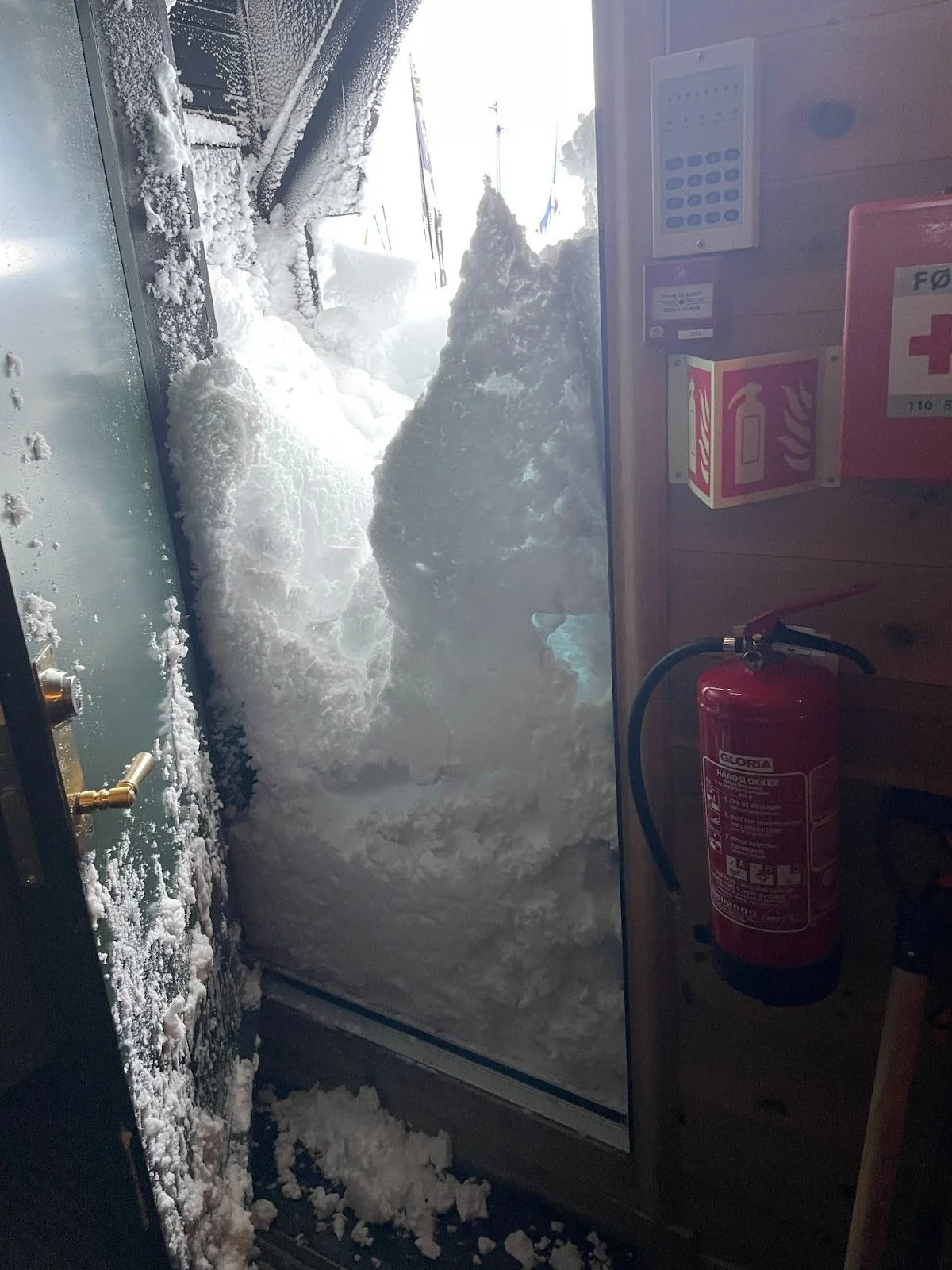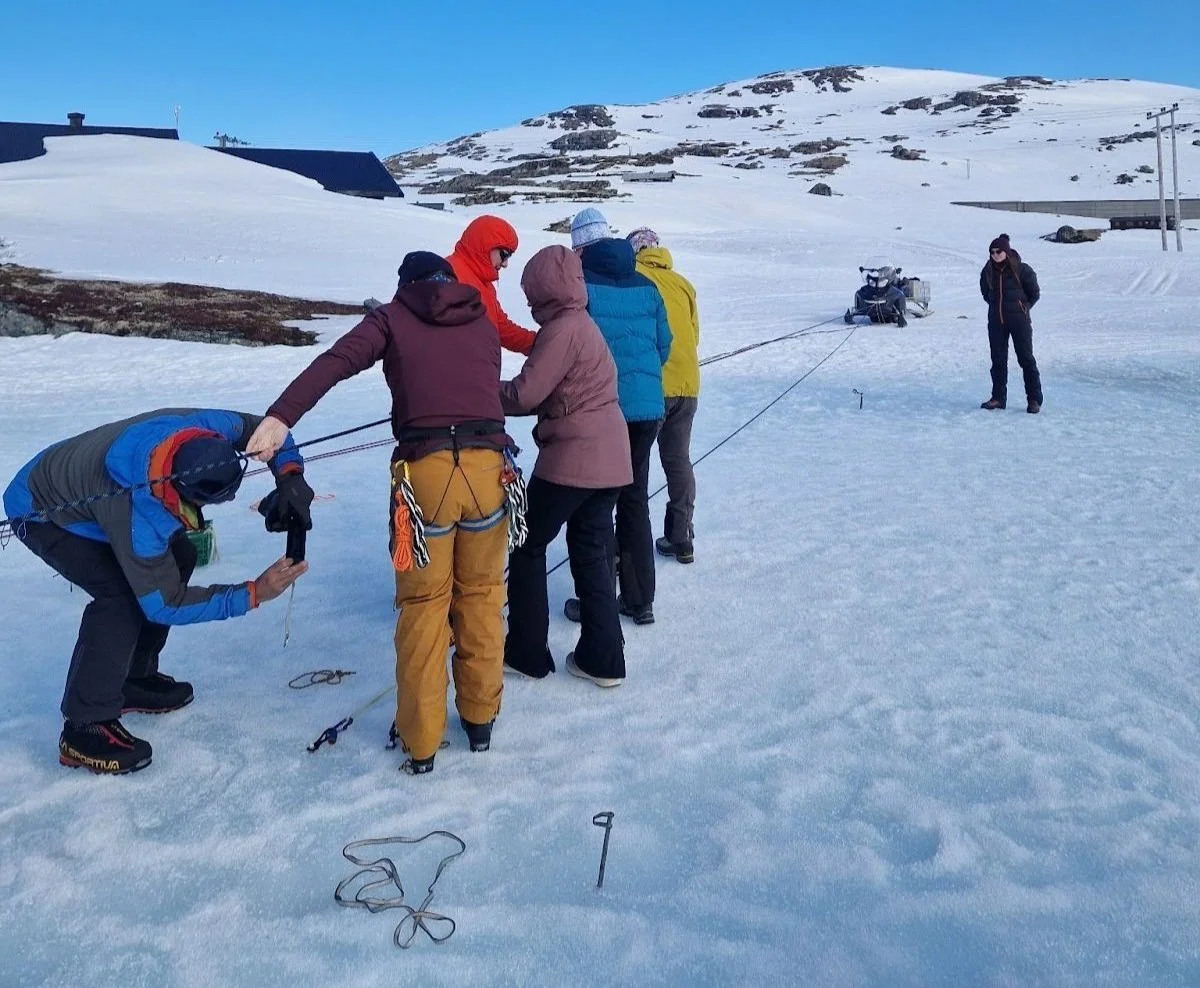Experiences from the FieldEX Field Safety and Preparedness Course
Field Instrumentation and Measurements in Cold Region Environments (FieldEX) is an exchange program for geoscience MSc and PhD students in Norway, Canada, USA and Japan. The aim of the program is to foster educational partnerships through short-term student exchanges focused on field techniques in cold region environments. This aligns with PCAPS’ Inclusivity Objective. In-situ field measurements are critical for the understanding of cold region environments. It is therefore important to train students to effectively undertake field research in cold regions, where work can be challenging due to weather and remote conditions. Amanda Skogjordet, one of PCAPS’ Communication Fellows, participated in a recent FieldEX course in Norway.
Participants during the FieldEX2025 course. Photo credit: Jens Ådne Rekkedal Haga
FieldEX helps support early career researchers (ECRs) to gain first-hand field experience in cold regions, through funding of graduate students to participate in field courses, as well as via supporting students to take part in fieldwork with project partners.
As a first year MSc student in meteorology at the University of Oslo, I had the chance to participate in the Field Safety and Preparedness Course from 6 to 12 April 2025 at the Finse Alpine Research Center in Norway.
During the week we had both cloudless skies and a snowstorm. We regularly had to dig out the front door of the research station! Photo credit: Amanda Skogjordet
The goal of this course was to prepare us to work outside in challenging and cold conditions. It included practical sessions on avalanche safety and crevasse rescue and we also produced an open-source field guide that covered important information one needs to know, for those who did not have the chance to participate in the course.
Learning how to fall on a glacier while wearing crampons and using ice axes. Photo credit: Arlec Chang
There were also various classroom sessions on first aid in cold and high elevation areas, how to walk on glaciers, how avalanches work, in addition to extended outdoor sessions.
Course organizer Regine Hock (UiO) giving a lecture. Photo credit: Jens Ådne Rekkedal Haga
We had two days outside in beautiful sunny weather where we got hand-ons experience about how important it is to use sun protection in snowy areas :) But the real reason we were outside was to gain valuable experiences in the snow with two mountain guides. We got to rescue someone (actually a snow scooter in this case) from a “crevasse”in addition to practising different knots and pulley systems, which are crucial to have in your muscle memory if an accident happens and you are stressed because your friend just fell into a crevasse! Another big part of the outdoor activities was to get to know how to use an avalanche beacon and save someone (this time, a backpack) buried somewhere under the snow.
Learning how to rescue someone from a crevasse using ice screws, ropes and pulleys. Photo credit: Eli Holm Høgemo
My favorite session was about harassment in the field, where we had open discussions about potential scenarios, shared our own experiences and watched the movie, Picture a Scientist. This session really made an impact on me, because it is so easy to forget all of the “smaller” under the iceberg things that are actually harassment, like being treated slightly differently and not having access to opportunities due to gender or orientation. I think these kinds of things are very important to at least become aware of, because most of them are very easy to overlook. We, as ECRs, are the next generation in science, and I hope and believe that talking openly about harassment helps to prevent future harassment.
The FieldEX course was a great experience! It is such an important initiative because it helps ECRs to get out into the field, while ensuring these opportunities and connections are possible worldwide. This aligns well with the goals of PCAPS to foster inclusivity, increase partnerships, and engage ECRs.






